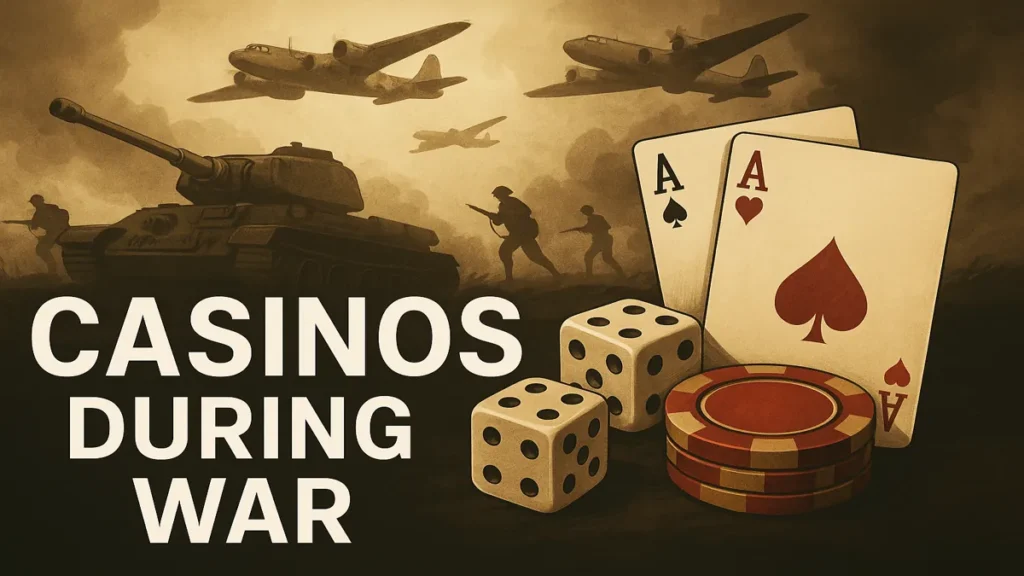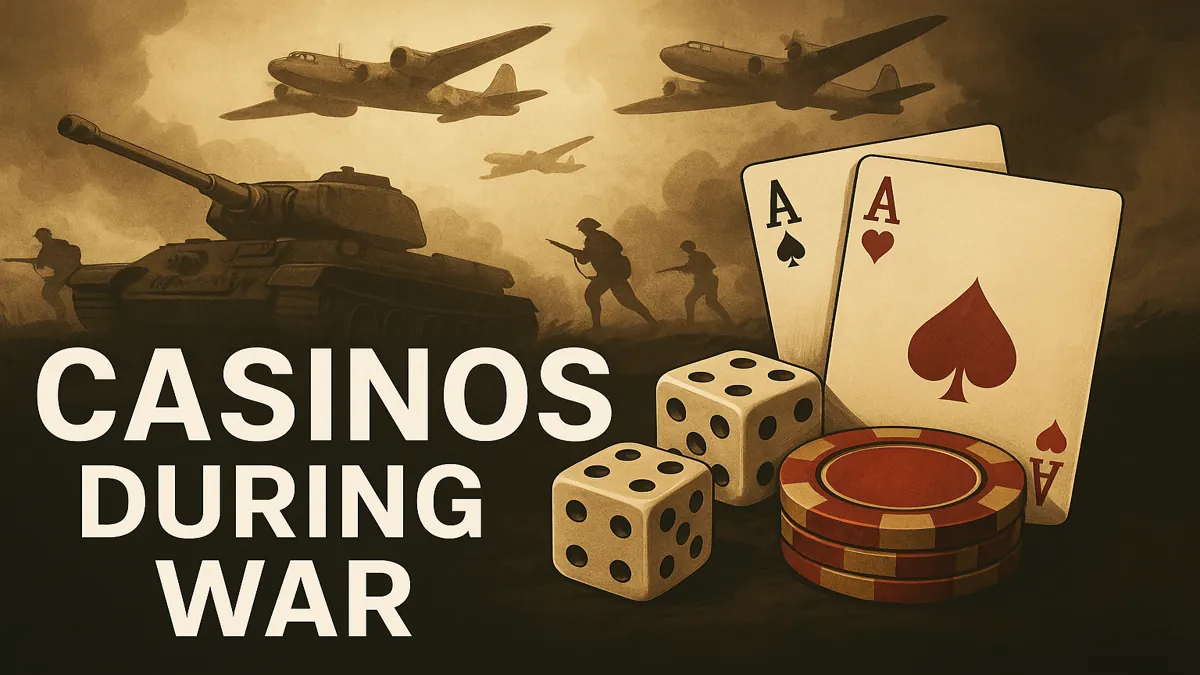Throughout history, casinos have not only served as entertainment hubs but also as unexpected symbols of resilience during times of war. From World War I to World War II, gambling establishments continued to operate—even thrive—under the shadow of global conflict. This article explores how and why casinos remained open during wartime, highlighting key examples across different nations.

Gambling Under Fire: Casinos During World War I
Maintaining morale behind the frontlines
During World War I, formal casinos in Europe reduced their operations but did not shut down entirely. In cities like Paris and Monte Carlo, gambling was seen as a form of escapism for civilians and soldiers on leave. Some casinos even redirected portions of their profits to war relief efforts, allowing them to operate with public sympathy.
World War II: High Stakes in Uncertain Times
Entertainment or espionage?
In World War II, some casinos became more than just gaming halls—they were also intelligence hubs. Monte Carlo’s famous casino hosted Nazi officers, spies, and Allied agents alike. The dual purpose of gambling and information gathering gave these venues unusual importance. In the United States, cities like Las Vegas remained relatively untouched by the war and used the period to quietly grow their casino infrastructures.
Neutral Zones and Gambling Safe Havens
When neutrality attracted players and profits
Countries that remained neutral during the wars—such as Switzerland and Portugal—saw their casinos flourish. Places like Estoril Casino in Portugal became gathering points for diplomats, refugees, and secret agents. Gambling served as a political and social lubricant in these spaces, often blurring the lines between diplomacy and diversion.
Underground Gambling and War Economies
Illegal bets and shadow economies
In countries under occupation or strict control, underground gambling thrived. Secret poker rooms, back-alley betting parlors, and mobile casino operations sprang up across Europe and Asia. These activities were not only for leisure—they sometimes supported local resistance movements or supplemented black market economies.
Gambling Through the Fire
The fact that casinos operated—even adapted—during the most chaotic moments in modern history underscores their complex role in society. Whether as morale boosters, intelligence hubs, or covert financiers, gambling halls during wartime tell a fascinating story of survival, strategy, and symbolism.
